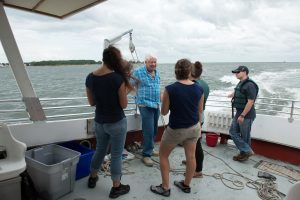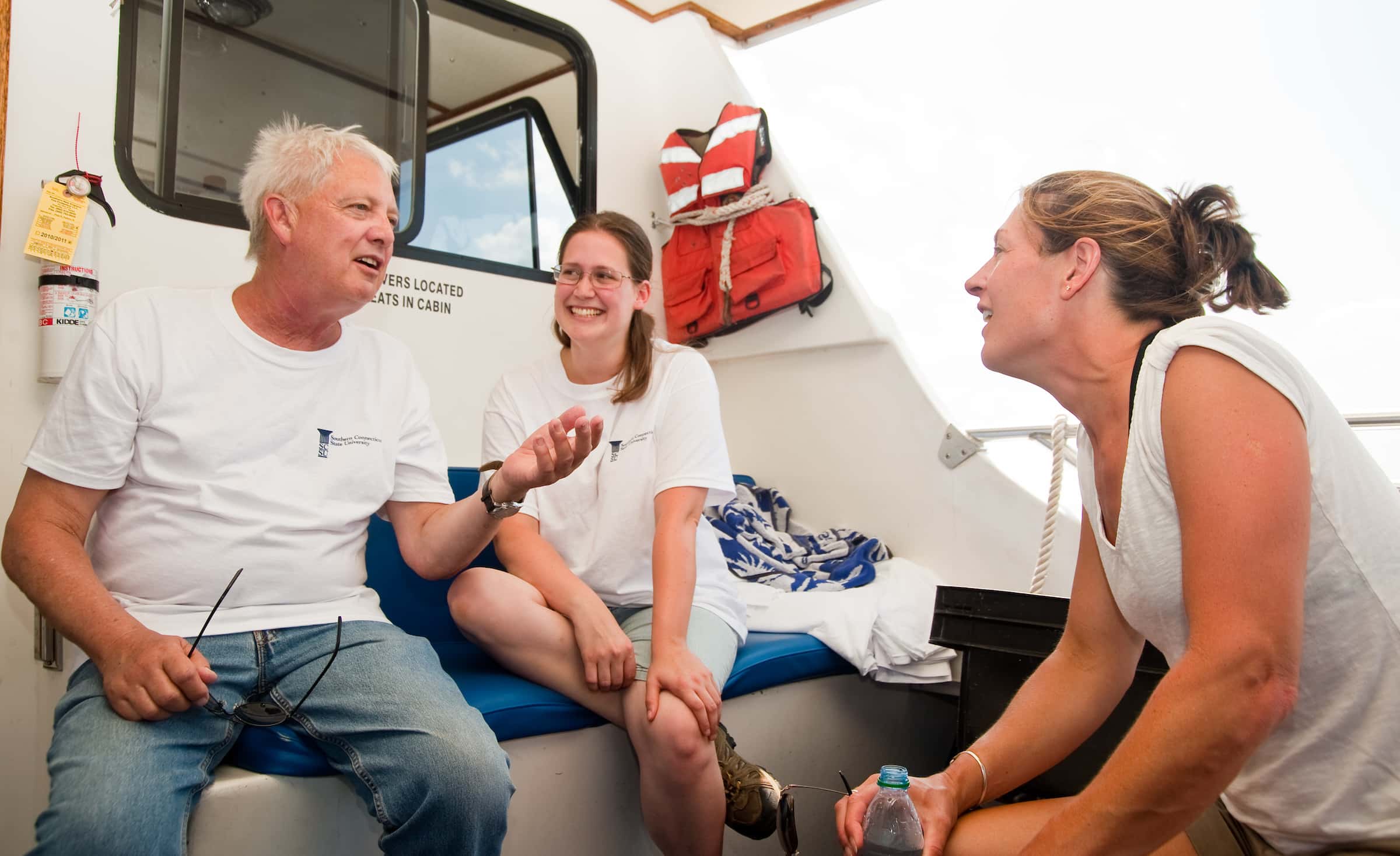The University community was deeply saddened to learn of the passing of James Tait, Professor of Science Education and Environmental Studies, on April 6, 2021.
Colleagues recall Jim as a passionate teacher and mentor to students: “He advised many, many thesis projects and served on the thesis committee for many others,” said Terese Gemme, Director of the Honors College. “Some of these students weren’t science majors, but were so captivated by what they learned in their classes with Jim, that they continued to take courses in ENV science and completed thesis projects with him.”
Jim, who joined the Southern faculty in 1997, earned tenure in 2002 and was promoted to full professor in 2014, was a co-founder and co-coordinator of the Werth Center for Coastal and Marine Studies. The Center was established 15 years ago to address environmental issues along the Connecticut shoreline and since that time the WCCMS has provided educational and research opportunities for hundreds of Southern students.
“His collaborative nature and his focus on environmental problem solving led to undergraduate and graduate student engagement in all of his courses and field-based research projects,” said Werth Center Co-Director Vince Breslin. “This provided invaluable experience to generations of students at Southern, and many of Jim’s former students have gone on to careers in science, graduate studies and law school. ”

Jim’s expertise was in Coastal Processes and his research, conducted with his students, contributed significantly to the understanding of beach erosion along the Connecticut shoreline, Dr. Breslin said. The outcomes of this work are now assisting regional managers and regulators as they design strategies to reduce the rate of coastal beach erosion.
Jim’s approach of teaching science by “doing science” led to his playing an integral role in bringing the NSF-supported program Science Education for New Civic Engagements and Responsibilities (SENCER) to Southern, Dr. Breslin said. Jim was part of the university’s SENCER team that was awarded The William E. Bennett Award for Extraordinary Contributions to Citizen Science in 2015. In 2005, Jim and Vince Breslin created the honors course: “Science on the Connecticut Coast: Investigations of an Urbanized Shoreline,” which was accepted as a SENCER model program and has remained highly popular in the Honors College curriculum.
“Jim inspired me and taught me a lot in the last 10 years, starting with his EVE class “Blue Gold” about precipitation, climate change, and water resources back when I was a grad student,” said Suzanne Huminski, Southern’s Sustainability Coordinator. “He was a natural teacher and a good friend. He was really patient, cheerful, and genuinely interested in his students’ ideas.”
Passionate about the benefits of a strong liberal arts education for Southern students, Jim was instrumental in the development and initial implementation of the Liberal Education Program (LEP), as a co-chair of the General Education Taskforce (later the Liberal Education Program Committee). Much of the language around Tier 3 in the original LEP charter comes from Jim’s experiences with SENCER, an organization that argues that science courses should address a “capacious, contemporary issue,” said Therese Bennett, Associate Dean for STEM in the College of Arts & Sciences
Jim, a native of sun bleached Southern California, never forgot his roots: “He was California through and through,” said Patrick Heidkamp, Chair of the Department of Environment, Geography & Marine Sciences. “He bought a house on the beach in East Haven so that he could look out at the Sound and try to recreate the West Coast experience.”
Susan Cusato, Professor of Environment, Geography & Marine Sciences, recalled attending a SENCER Summer Institute in San Jose, during which Jim rented a convertible and took a group of faculty members on a coastal drive to Santa Cruz.
“Along the way, he stopped to talk about fault lines, beach erosion, and numerous other environmental topics – his enthusiasm for environmental science was infectious,” Dr. Cusato said. “Those were good times; I like to think of him that way.”


